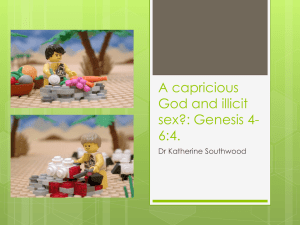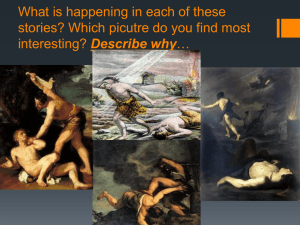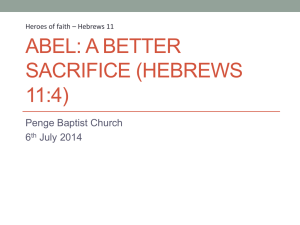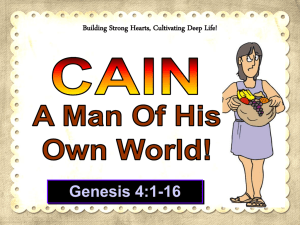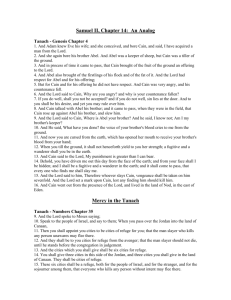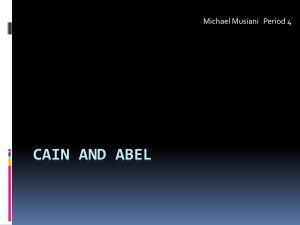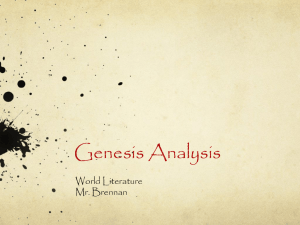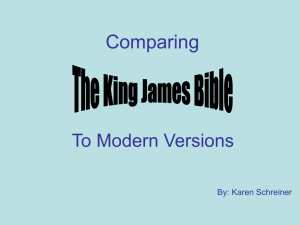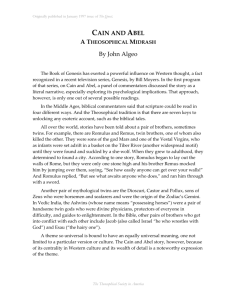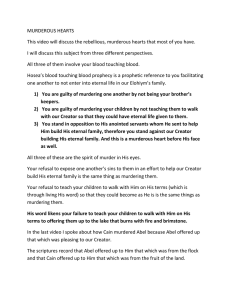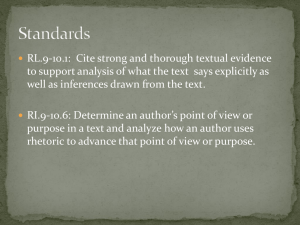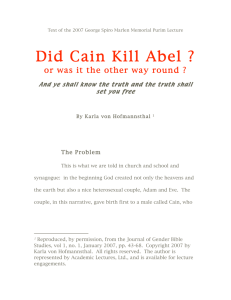here
advertisement
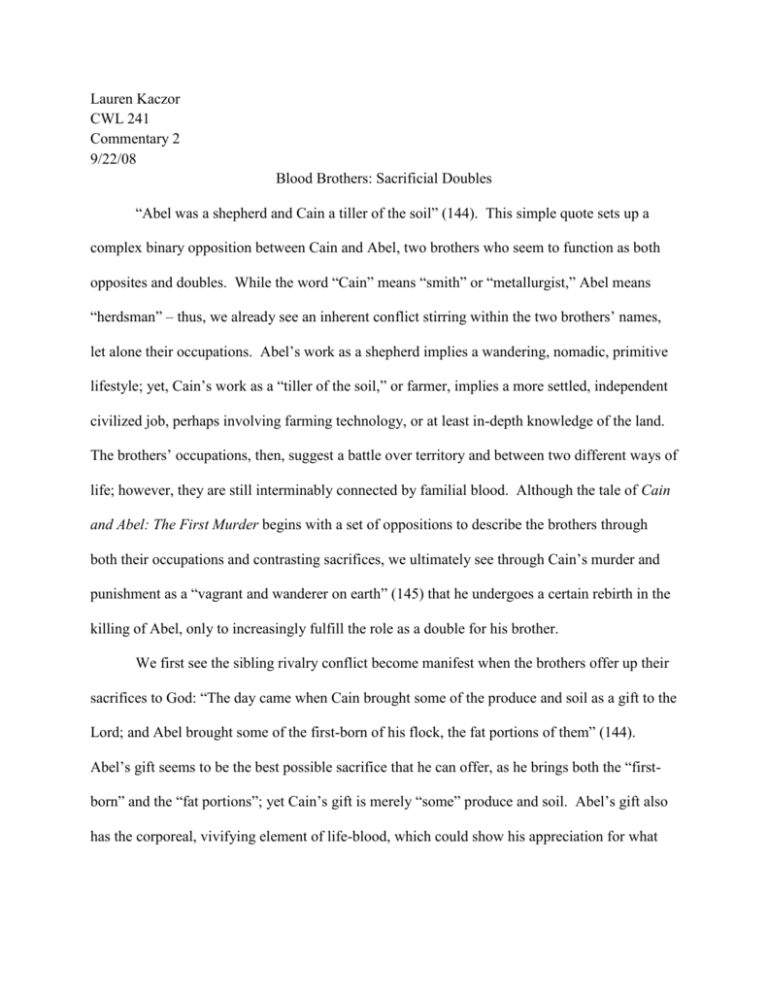
Lauren Kaczor CWL 241 Commentary 2 9/22/08 Blood Brothers: Sacrificial Doubles “Abel was a shepherd and Cain a tiller of the soil” (144). This simple quote sets up a complex binary opposition between Cain and Abel, two brothers who seem to function as both opposites and doubles. While the word “Cain” means “smith” or “metallurgist,” Abel means “herdsman” – thus, we already see an inherent conflict stirring within the two brothers’ names, let alone their occupations. Abel’s work as a shepherd implies a wandering, nomadic, primitive lifestyle; yet, Cain’s work as a “tiller of the soil,” or farmer, implies a more settled, independent civilized job, perhaps involving farming technology, or at least in-depth knowledge of the land. The brothers’ occupations, then, suggest a battle over territory and between two different ways of life; however, they are still interminably connected by familial blood. Although the tale of Cain and Abel: The First Murder begins with a set of oppositions to describe the brothers through both their occupations and contrasting sacrifices, we ultimately see through Cain’s murder and punishment as a “vagrant and wanderer on earth” (145) that he undergoes a certain rebirth in the killing of Abel, only to increasingly fulfill the role as a double for his brother. We first see the sibling rivalry conflict become manifest when the brothers offer up their sacrifices to God: “The day came when Cain brought some of the produce and soil as a gift to the Lord; and Abel brought some of the first-born of his flock, the fat portions of them” (144). Abel’s gift seems to be the best possible sacrifice that he can offer, as he brings both the “firstborn” and the “fat portions”; yet Cain’s gift is merely “some” produce and soil. Abel’s gift also has the corporeal, vivifying element of life-blood, which could show his appreciation for what God has created. In a sense, Abel could even be seen to be offering up his own blood, by sacrificing an animal that he possesses. Yet, God’s rejection of Cain’s gift causes him to spill the blood of his brother through murder. After the act of murder takes place, God states, “Hark! Your brother’s blood that has been shed is crying out to me from the ground. Now you are accursed, and banished from the ground which has opened its mouth to receive your brother’s blood, which you have shed” (145). Cain, in a twisted way, doubles Abel’s first attempt at sacrifice – yet instead of offering up an animal’s blood as a life-giving force, he sheds his brother’s blood. The ground is the receiver of this sacrifice, in the place of God, as it has “opened its mouth” to receive Abel’s blood. In his murder of Abel, Cain has, in a sense, become Abel as he sacrifices the blood of a living creature. God’s punishment for Cain, ironically, also seems to flow along these lines to parallel Abel, as he brands him “a vagrant and wanderer on earth” – much like Abel the wandering shepherd. Also, God states, “When you till the ground, it will no longer yield you its wealth (145).” Cain can no longer partake in his former occupation as a farmer and will receive no “wealth,” or good harvests from the land. In response to God’s punishment, Cain laments, “My punishment is heavier than I can bear; thou hast driven me today from the ground…” (145). Cain’s close relationship with the land has been severed with this murder so much so that he “cannot bear” his punishment. The question he asks – “Am I my brother’s keeper?” – seems to warrant an answer in the affirmative, because Cain’s “sacrificial” killing of his brother suggests that he is the owner or “keeper” of this sacrifice that he is giving up to the land. In sharing the same blood, the brothers do seem to have a mutual sense of ownership, or at least a bond, to each other. In the end, Cain serves as a double for his brother, paralleling the same initial sacrifice that Abel first made, but to a more horrific, unforgivable degree.
